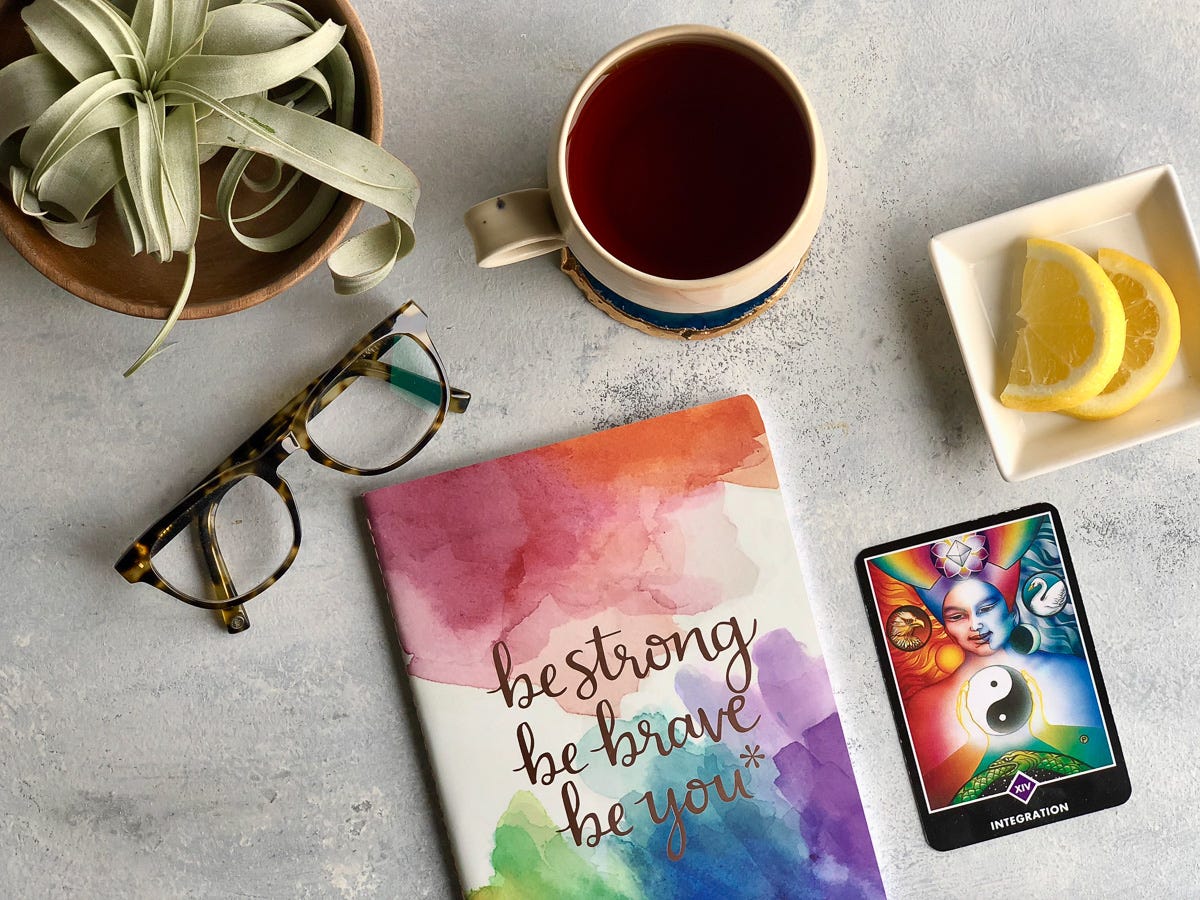How to be Kinder to Yourself with this Easy Practice
And become a little bit stronger.
Hey readers,
I’m sharing this one from the archives today because life was so full last week! It’s about my writing practice that helps me sort through complicated feelings when life feels overwhelming. It’s a good reminder that we have so many resources and wisdom inside us. You can listen to me reading it by pressing the audio button above. Enjoy. ~ J
Ever wonder why you feel so much better after writing or talking about something that’s been bringing you down?
Allow me to introduce Jen The Therapist. (#notaqualifiedtherapist).
My scholarly take:
Once you get your doubts onto paper (or spill it all to a friend) you realize how silly they sound.
Then they stop showing up. They lose their power.
Example:
When I’m plagued by self-doubt, I pull out my black-and-white Dollar Store composition notebook and scribble down all my random insecurities.
You know, like what if no one cares about what I write? Or reads it?
I vent all my twisted feelings about writing too slowly and being careless about grammar—whatever the head trash is that morning. Then, the fisherman's knot of crusty, fraying rope in my stomach loosens a smidge, and I can focus on work.
Turns out there’s almost thirty years of scientific study to back up my real-life experience. (Wish I had found this group of social scientists during my tumultuous twenties.)
In his book, Opening Up by Writing it Down, James Pennebaker describes a style, called expressive writing, as,
“A brief writing technique that helps people understand and deal with emotional upheavals in their lives. It’s a little like self-help therapy without the outlandish claims. And its greatest appeal is that it’s a method with strong scientific evidence behind it.”
It’s the cheapest form of therapy available today. (And who doesn’t love cheap therapy?)
As I pored over the research, one study struck me in particular.
A group of fifty senior engineers, recently laid off by a computer company (all over 50 years old), agreed to take part in a writing study.
The goal was to see if it would help them find new work. (By all accounts, they were a rather embittered and hostile lot after losing their jobs.)
The study divided them into three groups. One group wrote for 30 minutes a day for five consecutive days about their feelings about the humiliating episodes of being let go by management.
The second group did the same about how they were spending their time while not working.
And the third served as a comparison group, so they didn’t write at all.
Seven months later, 53% of the group who wrote about their thoughts and feelings had new jobs. Only 18% of the engineers in the other two study groups had landed something new.
Get this - the participants in all three groups went on the same number of interviews.
What made the difference?
EXPRESSION.

The group that could voice and explore their anger and humiliation was also able to put it aside and interview more confidently, coming across as more promising candidates.
Moral of the story?
Confronting difficult feelings about upsetting situations helps shift your attitude. And shifting your attitude means you can be more positive and move forward confidently.
Good news: you don’t have to think of yourself as a writer for this kind of self-expression to work its magic on you.
When I’m struggling with any (or all) of these things, my freewriting practice helps me untangle my feelings, clear my head, and take a step in a more positive direction. (Even if it’s a baby step.)
I can let all my self-doubt and insecurities loose on the page. Research shows that when you show up on the page, you’re showing up for yourself—and that’s how you get stronger.
Keep writing,
P.S. I’ll be holding another subscriber chat this Thursday, 1/30, after 2 pm CT. Bring your whole self, and let’s talk about your newsletter writing…tell me how it’s going. I’d also love to hear what Substacks you’ve been reading lately; drop any below or share ‘em with us on Thursday!








Every writer I know dances with self doubt on the regular. As a life-long journaler (who has often used this exact technique without knowing it was an actual technique), I can attest to the efficacy of this practice. Plus - super cathartic.